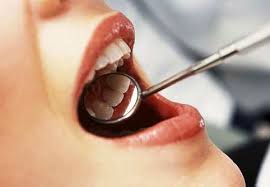Periodontic dentistry.
A periodontist is a dentist specialized in periodontics dentistry; after periodontists completed the same schooling and training as other dentists, they receive an additional three years of specialized training to become expert in prevention, diagnosis and treatment of periodontal diseases; periodontal diseases are those diseases that affect gums, bones, dental alveolar or periodontal membranes, every tissues that sorround and support teeth.
A periodontist is also expert of oral inflammations, is trained in the placement, maintenance and repair of dental implants, he/she is always kept abreast with new technologies and latest techniques for diagnosing and treating periodontal disease and is also trained in performing cosmetic periodontal procedures.
Usually a patient who may complain of gums inflammation go firstly to general dentist, that is educated and trained to treat early forms of gum disease; if periodontal disease is too much severe the dentist may refer the patient to a periodontist. Sometimes dentist and periodontist could work togheter in planning and managing the suitable dental treatment.
Periodontal care.
During a visit to the periodontist, he/she may examine the patient’s medical and dental history, because as regarding gums is very important to know about medications, past and current, or if the patient is being treated for any condition that can affect periodontal care, such as heart disease, diabetes, or pregnancy.
Then the periodontist examines the gums, checks to see if there is any gum line recession and how the teeth fit together when biting, and checks the teeth to see if any are loose. The periodontist may also use a small instrument called probe to measure the depth of spaces between teeth and gums, known as periodontal pockets.
Not all patients have to go to the periodontist; usually if there aren’t particular conditions affecting overall health and if patients take care of dental hygiene they haven’t to see a periodontist for all life; otherwise, if a gums inflammation, gingivitis, is not treated it may turn into something more severe like periodontitis, tooth loss or bone loss. Symptoms of gingivitis may be bad breath, bad taste in the mouth, red or soft gums, blood that appears during brushing or flossing.
Other types of patients have to put much attention on their gums, as people with diabetes, pregnant women, people with genetic history of periodontitis or with cardiovascular diseases.
Periodontist. Its function.
Periodontists may implant and manage dental implants, offer treatments as restoratives ones, scaling and root planing, to clean the infected surface of a root, root surface debridement, to remove damaged tissues. They can also treat patients with a range of surgical procedures.





